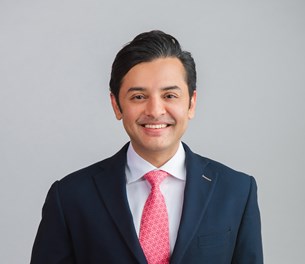Meeting
2015 Gastrointestinal Cancers Symposium

Johns Hopkins Singapore International Medical Centre, Singapore, Singapore
Akhil Chopra , Gilberto Lopes , Lavina D. Bharwani , Chung Yip Chan , Alexander Chung , Peng Chung Cheow , Choon Kiat Ho , Kui Hin Liau , Winston Woon , Jee Keem Low , Alex Yuang-Chi Chang
Background: Epidermal growth factor receptor (EGFR) pathway activation or over-expression plays an important role both in cirrhosis and hepatocellular carcinogenesis. We hypothesized that gefitinib (G), an oral tyrosine kinase inhibitor of EGFR, should reduce recurrence rate and/or prolong recurrence free survival when given in adjuvant setting. Methods: We designed a multicenter pilot study with a plan to enroll 40 HCC patients with complete resection and or with positive resection margin or residual disease < 0.5 cm (microscopic disease). Treatment consisted of G 250 mg orally daily for 6 months starting within 6 weeks of surgery. Follow-up included serum alpha-fetoprotein levels and imaging studies every 3 months for the first 2 years, every 6 months for years 3-5 and yearly thereafter. Main endpoints were recurrence-free survival, toxicity and correlative genetic studies. All statistical analyses were carried out on an intention-to-treat basis. The end point of recurrence free survival will be presented here. Results: 65 patients consented to the study, 40 were eligible and 25 were screen failures due to: diagnosis other than HCC (6 patients); poor post-operative recovery (9 patients); unresectable disease (3 patients); withdrawal of consent (2 patients); 1 patient had 2 cancers, and 4 developed metastatic disease.39 patients had R0 resection, whereas 1 patient had R1 resection. 4 female, 36 male. All patients completed 6 months of adjuvant G. Toxicities were mild; mainly grade 1 and 2 skin toxicity, diarrhea and pruritis. Median age - 63 years, median Child score-6, median TNM stage - II, median size - 4.9cm. 20 patients had liver cirrhosis. With a median duration of follow up of 4.1 years, the median recurrence free survival was 24 months. (95% CI 20-48). Conclusions: A median recurrence free survival of 24 months in patients with resected hepatocellular carcinoma treated with 6 months of adjuvant gefitinib compares favorably to historical data. Toxicity of gefitinib was mild and easily manageable. We await results of correlative genetic studies to identify potential prognostic and predictive biomarkers before considering embarking on a larger study. Clinical trial information: NCT00282100
Disclaimer
This material on this page is ©2024 American Society of Clinical Oncology, all rights reserved. Licensing available upon request. For more information, please contact licensing@asco.org
2015 Gastrointestinal Cancers Symposium
Poster Session
General Poster Session B: Cancers of the Pancreas, Small Bowel, and Hepatobiliary Tract
Cancers of the Pancreas, Small Bowel, and Hepatobiliary Tract
Multidisciplinary Treatment
NCT00282100
J Clin Oncol 33, 2015 (suppl 3; abstr 404)
10.1200/jco.2015.33.3_suppl.404
404
D23
Abstract Disclosures
First Author: Shintaro Kanda
2022 ASCO Annual Meeting
First Author: Likun Chen
2023 ASCO Annual Meeting
First Author: Min Hee Hong
2020 ASCO Virtual Scientific Program
First Author: N/a Zhoutong